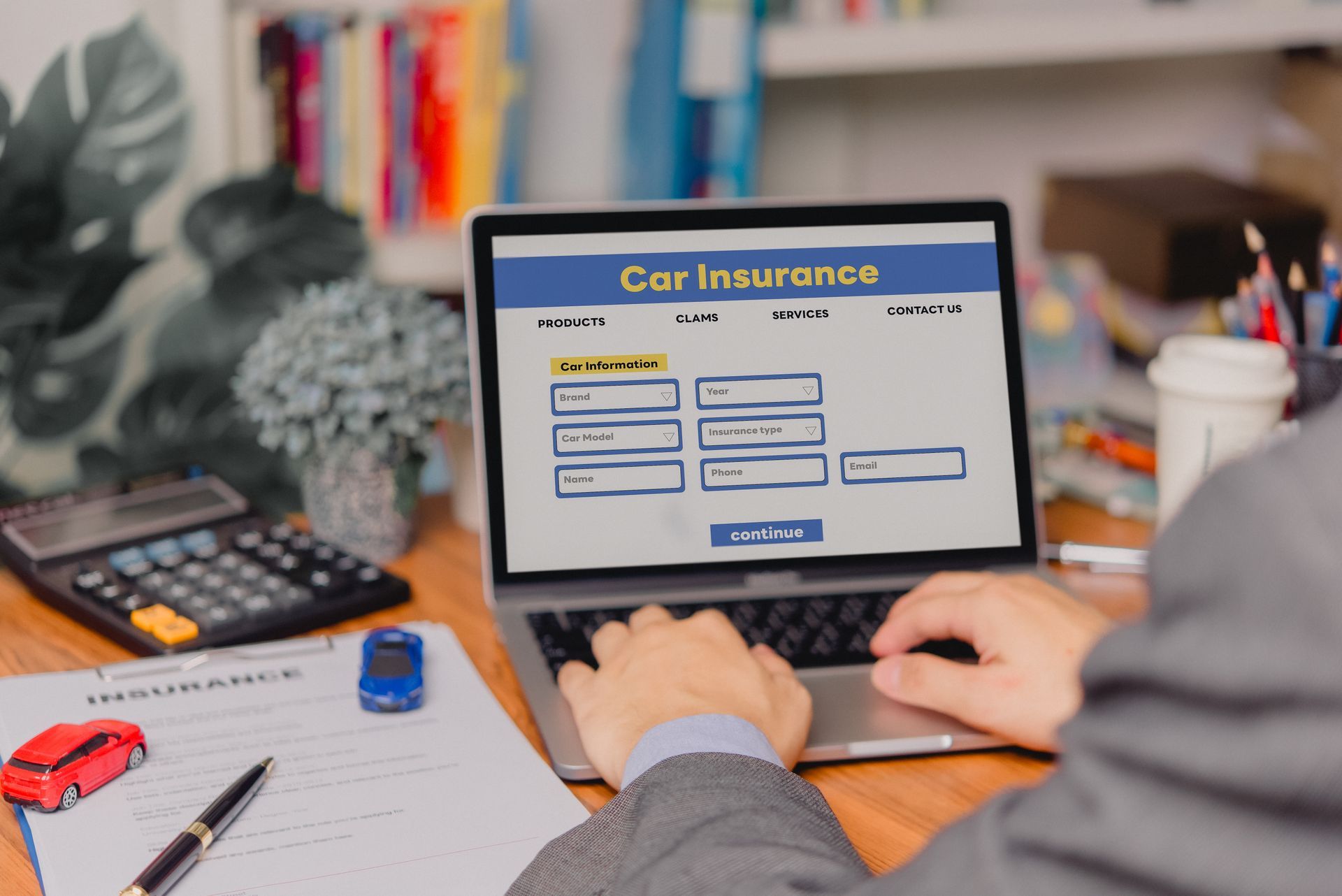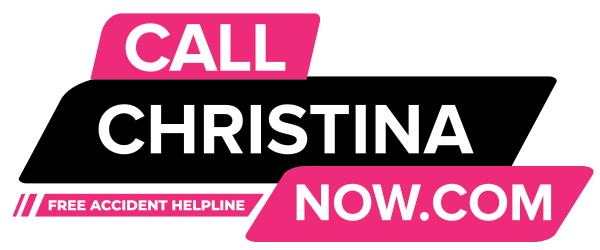Don't Call Christina Later, Call Christina Now
Follow us
Why You Should Audit Your Car Insurance Every 3 Months: A Smart Approach to Saving Money and Ensuring Coverage
Take Control of Your Coverage:
How Regular Car Insurance Audits Can Save You Money and Protect You Better
Car insurance is a vital part of being a responsible driver. It protects you financially in case of accidents, theft, or other unforeseen circumstances. However, as your life circumstances, vehicle, and driving habits change, so too should your insurance coverage. Many people set their car insurance policy once and forget about it—only to realize too late that they are either overpaying for unnecessary coverage or are underinsured. To ensure that you are always getting the best value and coverage, it’s a good practice to audit your car insurance every 3 months, or at least once a quarter. In this blog, we’ll explain why quarterly audits of your car insurance are essential, how to do it, and how it can save you both money and stress.
Take Control of Your Coverage:
How Regular Car Insurance Audits Can Save You Money and Protect You Better
Car insurance is a vital part of being a responsible driver. It protects you financially in case of accidents, theft, or other unforeseen circumstances. However, as your life circumstances, vehicle, and driving habits change, so too should your insurance coverage. Many people set their car insurance policy once and forget about it—only to realize too late that they are either overpaying for unnecessary coverage or are underinsured. To ensure that you are always getting the best value and coverage, it’s a good practice to audit your car insurance every 3 months, or at least once a quarter. In this blog, we’ll explain why quarterly audits of your car insurance are essential, how to do it, and how it can save you both money and stress.
Why Audit Your Car Insurance Every 3 Months?
Life Changes Affect Your
Insurance Needs
Your insurance needs may change frequently, especially in life stages where circumstances evolve. Whether you’ve moved, bought a new car, or made lifestyle changes (like working from home), all of these factors can influence the type and amount of coverage you need. For example, if you’ve reduced your driving due to working remotely, you may be able to lower your premium by adjusting your coverage. Similarly, if you’ve moved to a different area, your rates may be impacted by local traffic conditions or the prevalence of accidents and thefts in that area.
Changes in Your Vehicle's Value
The value of your vehicle can change over time due to depreciation. When you first buy a car, the vehicle is worth much more, but after a few years, it could lose significant value. Auditing your car insurance every 3 months gives you an opportunity to adjust your policy accordingly. You may no longer need certain types of coverage, such as comprehensive or collision coverage, on an older car that isn’t worth as much. Lowering your coverage on a depreciated vehicle can help you save money on your premium.
Life Changes Affect Your Insurance Needs
Your insurance needs may change frequently, especially in life stages where circumstances evolve. Whether you’ve moved, bought a new car, or made lifestyle changes (like working from home), all of these factors can influence the type and amount of coverage you need. For example, if you’ve reduced your driving due to working remotely, you may be able to lower your premium by adjusting your coverage. Similarly, if you’ve moved to a different area, your rates may be impacted by local traffic conditions or the prevalence of accidents and thefts in that area.
Changes in Your Vehicle's Value
The value of your vehicle can change over time due to depreciation. When you first buy a car, the vehicle is worth much more, but after a few years, it could lose significant value. Auditing your car insurance every 3 months gives you an opportunity to adjust your policy accordingly. You may no longer need certain types of coverage, such as comprehensive or collision coverage, on an older car that isn’t worth as much. Lowering your coverage on a depreciated vehicle can help you save money on your premium.
Life Changes Affect Your Insurance Needs
Your insurance needs may change frequently, especially in life stages where circumstances evolve. Whether you’ve moved, bought a new car, or made lifestyle changes (like working from home), all of these factors can influence the type and amount of coverage you need. For example, if you’ve reduced your driving due to working remotely, you may be able to lower your premium by adjusting your coverage. Similarly, if you’ve moved to a different area, your rates may be impacted by local traffic conditions or the prevalence of accidents and thefts in that area.
Changes in Your Vehicle's Value
The value of your vehicle can change over time due to depreciation. When you first buy a car, the vehicle is worth much more, but after a few years, it could lose significant value. Auditing your car insurance every 3 months gives you an opportunity to adjust your policy accordingly. You may no longer need certain types of coverage, such as comprehensive or collision coverage, on an older car that isn’t worth as much. Lowering your coverage on a depreciated vehicle can help you save money on your premium.
Take Advantage of Discounts
Insurance companies frequently update their discount offerings, and you may qualify for discounts that you weren’t aware of when you first signed up for your policy. Some discounts are tied to life changes, such as installing anti-theft devices, completing defensive driving courses, or even bundling your car insurance with home or renters insurance. By auditing your policy every 3 months, you can make sure that your insurer is aware of any changes and can apply any new discounts to your premium.
Ensure That You’re Not Overpaying
Overpaying for car insurance is a common mistake, especially if you haven’t reviewed your policy in a while. Many people renew their policies without reviewing their coverage levels, only to find that they’re paying for unnecessary or redundant coverage. For example, if you have a very high deductible or comprehensive coverage on a vehicle that is no longer in good condition, you might be overpaying. Regular audits allow you to evaluate what coverage is essential for your needs, ensuring that you’re not paying for unnecessary extras.
Take Advantage of Discounts
Insurance companies frequently update their discount offerings, and you may qualify for discounts that you weren’t aware of when you first signed up for your policy. Some discounts are tied to life changes, such as installing anti-theft devices, completing defensive driving courses, or even bundling your car insurance with home or renters insurance. By auditing your policy every 3 months, you can make sure that your insurer is aware of any changes and can apply any new discounts to your premium.
Ensure That You’re Not Overpaying
Overpaying for car insurance is a common mistake, especially if you haven’t reviewed your policy in a while. Many people renew their policies without reviewing their coverage levels, only to find that they’re paying for unnecessary or redundant coverage. For example, if you have a very high deductible or comprehensive coverage on a vehicle that is no longer in good condition, you might be overpaying. Regular audits allow you to evaluate what coverage is essential for your needs, ensuring that you’re not paying for unnecessary extras.
Take Advantage of Discounts
Insurance companies frequently update their discount offerings, and you may qualify for discounts that you weren’t aware of when you first signed up for your policy. Some discounts are tied to life changes, such as installing anti-theft devices, completing defensive driving courses, or even bundling your car insurance with home or renters insurance. By auditing your policy every 3 months, you can make sure that your insurer is aware of any changes and can apply any new discounts to your premium.
Ensure That You’re Not Overpaying
Overpaying for car insurance is a common mistake, especially if you haven’t reviewed your policy in a while. Many people renew their policies without reviewing their coverage levels, only to find that they’re paying for unnecessary or redundant coverage. For example, if you have a very high deductible or comprehensive coverage on a vehicle that is no longer in good condition, you might be overpaying. Regular audits allow you to evaluate what coverage is essential for your needs, ensuring that you’re not paying for unnecessary extras.
Ensure You’re Fully Covered in Case of Emergency
As your personal and financial situation changes, it’s important to make sure that your car insurance coverage reflects those changes. If your income or assets have increased, you might need to adjust your liability limits to ensure that you’re fully covered in case of an accident. A quarterly audit can help you assess whether your insurance policy is sufficient for your current needs.
Ensure You’re Fully Covered
in Case of Emergency
As your personal and financial situation changes, it’s important to make sure that your car insurance coverage reflects those changes. If your income or assets have increased, you might need to adjust your liability limits to ensure that you’re fully covered in case of an accident. A quarterly audit can help you assess whether your insurance policy is sufficient for your current needs.
How to Audit Your Car Insurance Every 3 Months

Review Your Coverage Needs
Take a look at your current car insurance policy and evaluate your coverage levels. Ask yourself if they still match your needs. For example, if your car is getting older, do you still need full coverage, or would liability coverage suffice? Are your deductibles too high? Are there any additional coverages you can eliminate to save money?
Check for Changes in Your Vehicle
Has the value of your car changed since the last audit? You can use resources like Kelley Blue Book or Edmunds to check the current market value of your vehicle. If your car’s value has significantly decreased, it might be worth lowering certain aspects of your coverage to save on premiums.
Review Your Coverage Needs
Take a look at your current car insurance policy and evaluate your coverage levels. Ask yourself if they still match your needs. For example, if your car is getting older, do you still need full coverage, or would liability coverage suffice? Are your deductibles too high? Are there any additional coverages you can eliminate to save money?
Check for Changes in Your Vehicle
Has the value of your car changed since the last audit? You can use resources like Kelley Blue Book or Edmunds to check the current market value of your vehicle. If your car’s value has significantly decreased, it might be worth lowering certain aspects of your coverage to save on premiums.

Review Your Coverage Needs
Take a look at your current car insurance policy and evaluate your coverage levels. Ask yourself if they still match your needs. For example, if your car is getting older, do you still need full coverage, or would liability coverage suffice? Are your deductibles too high? Are there any additional coverages you can eliminate to save money?
Check for Changes in Your Vehicle
Has the value of your car changed since the last audit? You can use resources like Kelley Blue Book or Edmunds to check the current market value of your vehicle. If your car’s value has significantly decreased, it might be worth lowering certain aspects of your coverage to save on premiums.

Update Personal Information
Has your address changed? Did you get a new job or start working from home? Your driving habits and location can impact your insurance premium, so keep your insurer updated with the latest information. A change in where you park your car or how many miles you drive annually can have a major impact on your rates.
Shop Around for Better Rates
Even if you’re happy with your current insurer, it’s always worth shopping around. Every 3 months, consider getting quotes from other insurance companies to compare premiums and coverage. Insurance rates can vary widely between providers, so it’s important to check if you’re getting the best deal possible. Online comparison tools can help you easily compare multiple quotes in just a few minutes.
Check for Available Discounts
Insurance companies often offer a variety of discounts, and it’s important to keep track of what you qualify for. Have you recently completed a defensive driving course? Installed a new anti-theft system in your car? If so, let your insurance company know, and see if these discounts can be applied to your policy.
Review Your Policy for Errors
Mistakes happen, and insurance companies may sometimes make errors when processing your policy. Always double-check that all the details on your policy are correct, such as your vehicle’s make, model, and VIN (Vehicle Identification Number). Incorrect information can lead to a higher premium or issues with a claim if an accident occurs.

How an Insurance Audit Can Save You Money
- Lower Premiums: By adjusting your coverage to match your current needs, you may find that you’re paying less than you were before. If you’ve reduced the value of your vehicle or lowered your deductible, you might qualify for a lower premium.
- Avoid Unnecessary Costs: Car insurance policies often have extra features that you don’t need, like roadside assistance or rental car coverage, which can be removed to lower costs. A quarterly audit helps you identify areas where you might be overpaying.
- Access Discounts: By staying up-to-date with discounts, you can save money every month. Whether it’s a good driver discount, a multi-policy discount, or a safe vehicle discount, being proactive about checking for available discounts can add up to significant savings.

How an Insurance Audit Can Save You Money
- Lower Premiums: By adjusting your coverage to match your current needs, you may find that you’re paying less than you were before. If you’ve reduced the value of your vehicle or lowered your deductible, you might qualify for a lower premium.
- Avoid Unnecessary Costs: Car insurance policies often have extra features that you don’t need, like roadside assistance or rental car coverage, which can be removed to lower costs. A quarterly audit helps you identify areas where you might be overpaying.
- Access Discounts: By staying up-to-date with discounts, you can save money every month. Whether it’s a good driver discount, a multi-policy discount, or a safe vehicle discount, being proactive about checking for available discounts can add up to significant savings.
Auditing your car insurance every 3 months is a simple but highly effective way to ensure that you’re getting the best value for your coverage. It allows you to adapt your policy as your needs change, avoid overpaying, and ensure that you’re always properly insured. Taking the time to review your policy can help you save money, protect your assets, and give you peace of mind on the road.
If you haven’t audited your car insurance recently, now is the perfect time to start! Take a few minutes every quarter to review your coverage, check for discounts, and compare rates. Don’t wait – act today to save money and ensure your policy meets your needs. Start your car insurance audit now to make sure you’re covered!
Auditing your car insurance every 3 months is a simple but highly effective way to ensure that you’re getting the best value for your coverage. It allows you to adapt your policy as your needs change, avoid overpaying, and ensure that you’re always properly insured. Taking the time to review your policy can help you save money, protect your assets, and give you peace of mind on the road.
If you haven’t audited your car insurance recently, now is the perfect time to start! Take a few minutes every quarter to review your coverage, check for discounts, and compare rates. Don’t wait – act today to save money and ensure your policy meets your needs. Start your car insurance audit now to make sure you’re covered!
Quick & Reliable
We are available 24/7 to Guide You to Better Health.
CALL CHRISTINA NOW is here to help 24 hours a day, 7 days a week, offering free and compassionate support. When you call us, we'll listen to your concerns, understand the specifics of your accident, help you find medical care for your injuries, and connect you with a professional who can advise you on the legal aspects of your situation.
CALL CHRISTINA NOW specializes in assisting with Lawyer and Medical Accident matters. If you've been in a car, motorcycle, or truck accident—or any other kind of accident—contact us today for trustworthy support.
DISCLAIMER:
CALL CHISTINA NOW isn't a law firm and can't provide legal advice, but we can refer you to the right attorney who can.
All Rights Reserved | Call Christina Now
Copyright © Call Christina Now Offers All Rights Reserved 2025
View Our Privacy Policy | Terms & Conditions | Disclaimer
